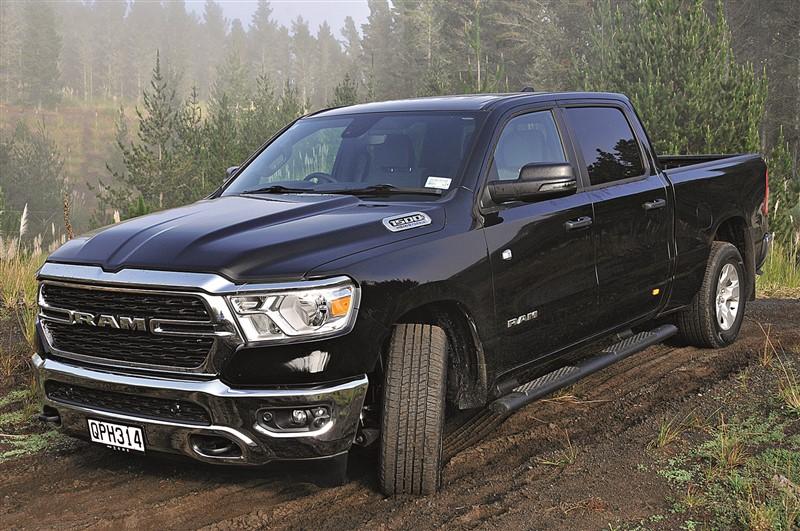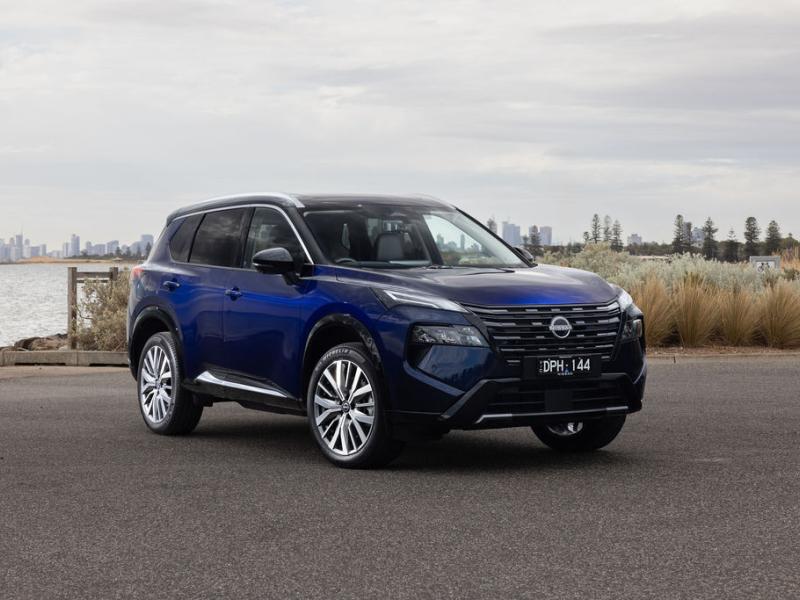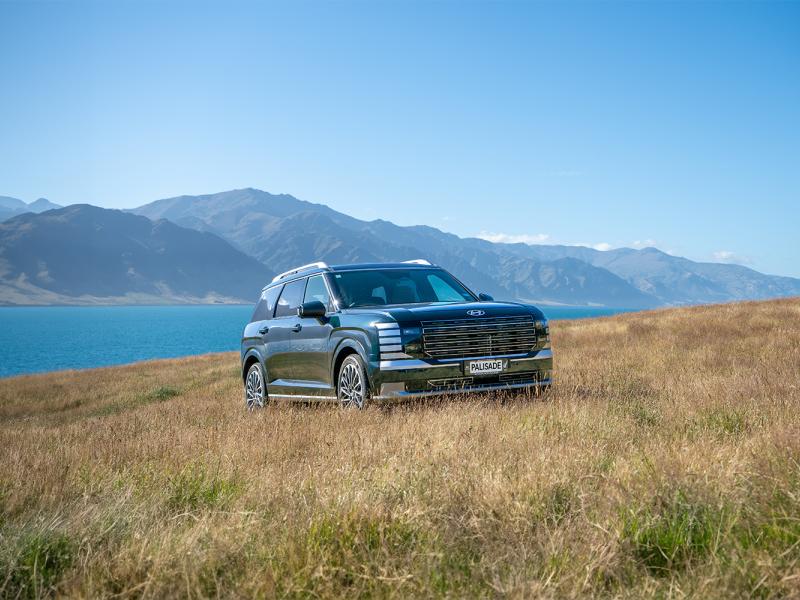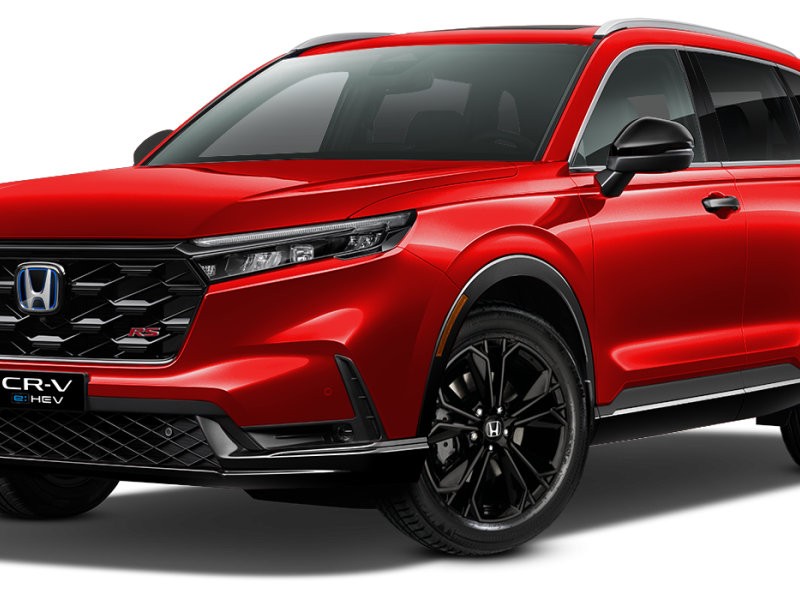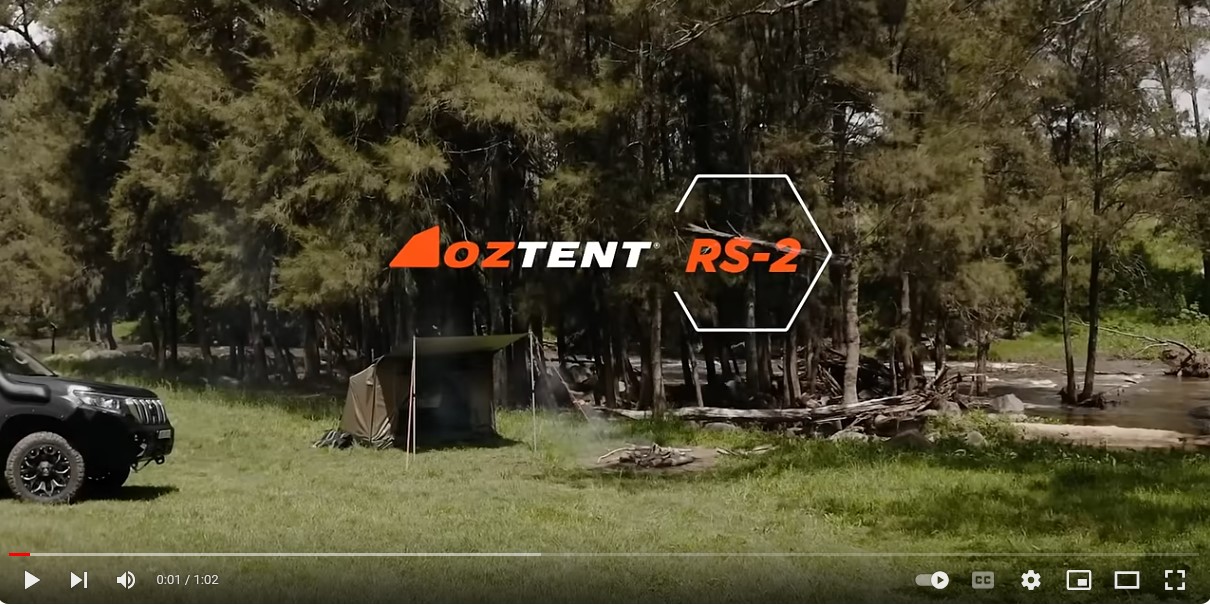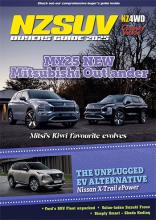Big Horn set to win new 4WD pickup enthusiasts
World famous in America, the Ram 1500 Big Horn has arrived down under. With a 5.7-litre Hemi V8 engine, class-leading 4.5-tonne maximum braked tow rating, and a choice of two cargo tub sizes (including a massive 6’4” long tub), the Ram 1500 Big Horn is a true workhorse.
At the beginning of June, NZ4WD got an early media drive opportunity of the new arrival, running it up the west coast north of Auckland to Woodhill Forest.
This is the most affordable Ram in the range, and now uses Ram’s new DT chassis platform. The DS version it replaces was smaller and narrower.
Anyone thinking ‘entry level’ needs to have another think. This latest addition to the Ram range is priced at $129,990. That’s at least $15,000 under the price of its only rival at this level. It is also a cost-effective way to get a massive tow rating (4,500kg) without being duck-shoved up from warrant of fitness to the much more rigorous certificate of fitness. While not many people will tow close to the 4500kg limit, what the Ram will do well is tow 3000kg to 3500kg trailers a lot better and more safely than any of the midsize utes ever could, as they end up right at their legal limits
Best of all, it’s one of a few ways to get the V8 engine soundtrack when out for a drive.
Last century, American auto brands made half-hearted attempts to be present in the New Zealand market. Through sub-agencies and sub-contracted arrangements, Jeep, Chevy and others struggled to be visible. It wasn’t really workable, though there are a handful of RHD Jeep J20 pickups floating around the country, a few Ford F-150, 250 and even 350 privately imported pickups and even a handful of RHD Nissan Titans and Toyota Tundra double cabs. In most cases, by the time a right-hand drive conversion was done and certification completed, there was little profit returned for a huge effort.
As New Zealand’s transport laws were refined, it became obvious that the big American muscle was the best, first and only choice for towing big loads or big machinery whether for work or play. Wide in track, long in wheelbase, with a massively strong chassis, Rams were the first to fit the bill.
So it was Ram that made a go of it, brought into New Zealand by Ateco, and it is Ram that continues to sell the most large pickups in this country.
Rivals? A nod to GMSV for making the Silverado a reality in RHD.
Ford, by contrast, is conspicuous by its absence. That’s disappointing, since the F-150 is available in RHD across the Tasman.
Like other Rams, the Big Horn’s V8 engine is supported by an eTorque Petrol Mild-Hybrid system which helps it return excellent fuel efficiency. It’s a V8 that will operate as a four-cylinder when required. With all eight cylinders at full growl, the engine makes 291kW at 5,600rpm. Are owners going to wring it out to that extent? Not often. But it’s nice to know the power is there (and maybe give it a nudge every now and then). More importantly, the engine makes 556Nm at 3,950rpm. The transmission is an eight-speed torque converter unit, the transfer case is electrically switched and offers 4hi, 4auto, 4lo and RWD. That 4auto option is supreme in wet and greasy going, as it can be used on tarmac as well as gravel.
Stopping is important too. All models of Ram 1500 have 378mmx30mm disc brakes up from, with dual piston callipers; 375mmx22mm at the rear with single-piston callipers. The wheels are 18”x8” cast aluminium alloy with 275/65 R18 tyres. Ram has resisted the temptation to go full-bling with 20-21” wheels, and the advantage of this is when it comes time to replace the rubber: there are more choices of tyre, and the prices are more friendly.
Suspension is A-arm at the front with coil springs; five-link rear, again with coil springs. This is the source of the big truck’s plush ride. Usually though, a coil rear compromises tow rating and payload. Not in this case.
In traffic, Big Horn wafts along, head and shoulders above the other utes and cars. A low-ish ‘shoulder’ line makes the big truck easy to place in its lane even when tatty hatchbacks are trying to sneak into our lane.
Off highway, the Ram’s road-holding is impressive. Corrugations and potholes that throw smaller vehicles offline on the way into Woodhill Forest are neither heard nor felt in the Ram. Gravel berms are simply flattened.
In the cab, it’s all quite relaxed.
Put simply, the level of comfort inside the Big Horn makes it the best way to transport friends, family or workers and all their equipment. Sitting way up high, travelling in SUV levels of comfort.
It’s wide enough for three ‘well-nourished’ adults to spread out over the rear bench. Wide enough that the driver, when belted in, can’t reach the passenger door handle.
Along with all that space, there are two other things that immediately stand out. The impeccable RHD conversion and the Italianate style and presentation of the dashboard and instrumentation. Especially compared to rival US trucks.
This truck is also well designed in terms of access. Climbing in is no hardship (aided by well-placed grab handles) and finding the right driving position is straightforward.
The dash layout is conventional but well executed, with clear and logical placement of most of the major controls, from the leather steering wheel and analogue-rich instrumentation with just the right amount of digital support displays, to the smart, space-saving location of the auto gear selector on the dash.
The seats are finished in grey cloth, front seats are manual, but are heated and the rear has a 60/40 split to access stowage. The rear doors open to almost 90 degrees to give superb access for passengers or cargo. The real estate is generous: the rear will accommodate no less than three child seats with Isofix locators.
Because the Big Horn is all about towing loads, there’s a trailer sway management system controlled from the dash.
The sound system has six speakers; stepping further up the range unleashes a full 19 speakers.
There’s no navigation system onboard, but these days we mostly use our phones, don’t we?
The sense of space up front is enhanced by a central console that ends at the front of the seats, leaving front seat passengers free to loll about as they like. Fear not, there’s still plenty of storage. The centre console provides a broad and comfortable arm rest with easy access to cup/bottle holders, a lidded compartment underneath and a handy upright mobile phone recess at the edge. This truck could have been a six-seater except for Australian Design Rules the require only two humans up front.
This all highlights the ample and well-considered storage facilities throughout the Big Horn, from the giant double-decker door bins and two glove compartments (the upper one with a light, the lower with a lock) to the upper dash shelf, handy floor trays and, in the rear, lidded underfloor containers, seatback pockets, console cubby and abundant space under the bench.
An 8-inch touchscreen would be quite large in smaller trucks, but on the Ram’s dash seems tiny even if it’s not. The 8.4” Uconnect touchscreen comes with wireless Apple Carplay and Android Auto connectivity, as well as convenient steering wheel controls for audio, phone and cruise control. The Big Horn also features front and rear ParkSense park assist, power and heated door mirrors, electro-chromatic rear-view mirror, electric rear sliding cab window and much more.
These things are pretty luxurious inside, but that doesn’t mean they compromise – at all – on load carrying or towing. Available in either 5’7” (1,702mm) or 6’4” (1,930mm) cargo tub versions, the Big Horn features a bedliner and load tray illumination as standard, along with a central-locking tailgate equipped with a fully damped tailgate release. The Ram’s wheelbase is 3,672mm with the 5’7” tub; 3,828 with the longer 6’4” tub.
On all surfaces, the multi-link, coil sprung, disc-braked rear end is far ahead of any leaf-sprung rival.
The 6’4” cargo tub variant is the largest across the 1500 range, delivering more load-carrying capacity than ever. The cargo tub width will take a full-size pallet with ease with space left over for all kinds of gear. There are multiple tie-down points, a deployable bed step and up to 878kg payload on the 6’4” tub variant, making it perfect for the job site during the week and out and about for weekend adventures.
Fuel use? Tipping the scales at 2.5 tonnes, the 2023 RAM 1500 Big Horn is officially rated the same as all other models in the range for fuel consumption, claiming 13.6L/100km. When we picked it up, the Big Horn was suffering the lead foot of a previous reviewer, and its economy stood at 16.7. Without being silly, we brought that down to 15.5, then 14.4 and finally 13.7.
In summary, this is a specialist, hard-core vehicle designed for shifting loads that other utes and SUVs can’t (or shouldn’t) manage. It has a ladder-frame chassis, steel four-door cab and a solid-axle rear suspension, so it’s heavy and large, requiring some care from the driver in tight spaces. On the open road, though, it’s sublime.
Several of NZ4WD’s motorsport mates own big pickups and swear by them. Towing a tandem or triple axled trailer is pretty much illegal using a ‘mid-size’ ute like a Ranger or Amarok once a race vehicle, tyres, tools and fluids are added. Unless the tow vehicle is a full-sized pickup like the Big Horn. Tow more, carry more, move more, see more, and enjoy more. We too are well impressed.

